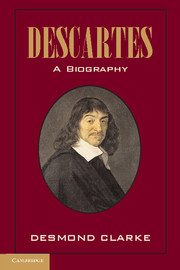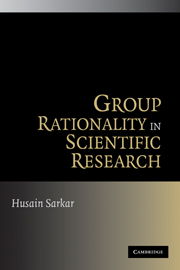Descartes' Cogito
Perhaps the most famous proposition in the history of philosophy is Descartes' cogito 'I think, therefore I am'. Husain Sarkar claims in this provocative interpretation of Descartes that the ancient tradition of reading the cogito as an argument is mistaken. It should, he says, be read as an intuition. Through this interpretative lens, the author reconsiders key Cartesian topics: the ideal inquirer, the role of clear and distinct ideas, the relation of these to the will, memory, the nature of intuition and deduction, the nature, content and elusiveness of 'I', and the tenability of the doctrine of the creation of eternal truths. Finally, the book demonstrates how Descartes' attempt to prove the existence of God is foiled by a new Cartesian Circle.
- Anything on Descartes from Cambridge is going to be treated seriously
- This is a provocative reading of Descartes' most famous argument
Reviews & endorsements
"...a very interesting and thought-provoking book that combines a systematic presentation and critique of the main ways of reading the cogito as an argument with a new approach to the Cartesian writings...as the author intended, a 'fresh perspective'." Philosophy in Review
"Sarkar moves, with care and erudition, through several centuries of scholarly examination of the cogito; most convincingly, he builds the case for its importance to Descartes' philosophy as a whole.... Highly recommended." Choice
Product details
December 2004Adobe eBook Reader
9780511055560
0 pages
0kg
6 b/w illus.
This ISBN is for an eBook version which is distributed on our behalf by a third party.
Table of Contents
- Preface
- Acknowledgements
- Abbreviations
- 1. The prolegomena to any future epistemology
- 2. The problem of epistemology
- 3. The solution: cogito
- 4. A skeptic against reason
- 5. The five ways
- 6. Cogito: not an argument
- 7. The content of the cogito
- 8. Memory, explanation, and will
- Appendices
- Bibliography
- Name index
- Subject index.





